Rue /Ruta graveolens/ is a perennial herb with a characteristic odor. Reaches a height of 50 to 80 cm. It is native to land near the Mediterranean Sea. Grown in Asia and Europe.
The healing qualities of rue have been known since the works of Ovid, Pliny and Dioscisis. From antiquity to the present day, the people of Europe considered rue an invaluable tool for the treatment of diseased eyes. People believed that where the rue grows, there are no insects and snakes.
Rue grows in rocky, dry places, hidden in the bushes. As a garden plant, it is very common.
Composition of rue
The composition of rue has rithy, caprylic, and heptanoic acid. Rich in vitamin C and vitamin D, bitter substances, tannins, and other furocoumarines. Rue contains 0.70% essential oil, resins and flavonoids.
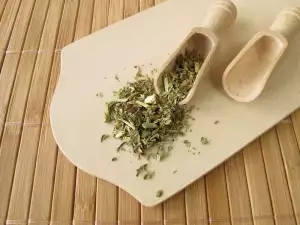
Collection and storage of rue
For therapeutic purposes, use the ground part of the plant and in particular- the leaves. They are harvested before flowering, because then their aroma is pleasant. Stems are cut with their leaves, at a height of 30 cm from the top down.
Keep grass through cut creasing, or steam pressure. Do not pick stems without leaves or flowers. Dried leaves are gray-green, often ground into powder and used for teas.
Benefits of rue
Rue has well expressed anthelmintic, carminative, antispazmodic, nerve calming and stimulating effects. Strengthens the stomach and is used for a variety of diseases and medical conditions.
Rue is good for the circulatory system because it strengthens capillary walls and increases peripheral circulation. Helps with acute headaches, epilepsy, seizures, convulsions, anxiety, dizziness, nervousness and other conditions of the nervous system.
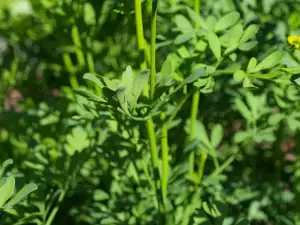
Rue is a valuable remedy for diseases of the cardiovascular system - lowers high blood pressure and helps in atherosclerosis. Vision becomes much sharper and clearer. Rue is used in some women's unpleasant conditions - uterine bleeding, painful menstruation, palpitations during menopause. Rue causes menstruation.
In terms of the digestive system, it relieves symptoms of colic, gas, bloating, stomach cramps and various stomach problems. Rue improves appetite.
The herb relieves symptoms of gout, rheumatic pains, intestinal worms, nausea and fever. Helps with coughs, difficulty breathing and hives - a viral respiratory infection that most often affects children.
In small amounts, rue is used to eliminate toxins from the bites of snakes, spiders and scorpions. It is used for external application in joint pain, gout, sciatica, rheumatism, warts.
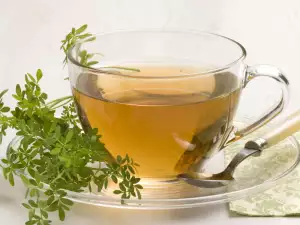
Folk Medicine and Rue
In folk medicine, rue is used as a good sedative and soporific. For this purpose, soak ground part of the plant in fresh cold water and leave for 12 hours. Drink one cup of tea before bedtime.
Rue is used in inflammatory and ulcerative diseases of the stomach and intestines, for worms. Chop 1 gram of plant and mix with 400 ml of cold water. Leave for 8 hours, and then extract the resulting drink throughout the day.
Dangers of Rue
You should not take rue in large doses, it can cause serious poisoning. Rue can cause vomiting and dizziness. Not recommended for use with food, pregnant women should avoid it. The juice of fresh rue irritates the skin and can cause blisters or dermatitis in sensitive people.
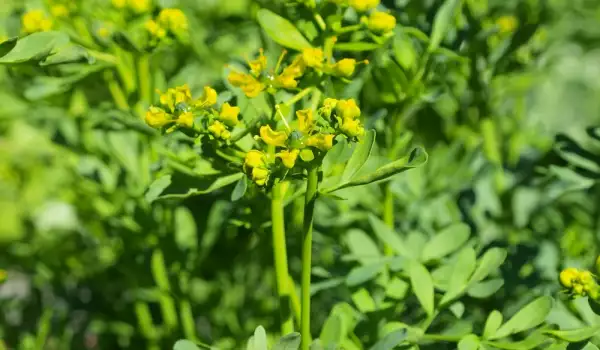
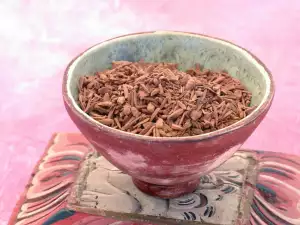
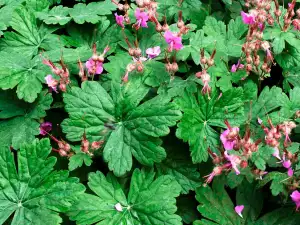
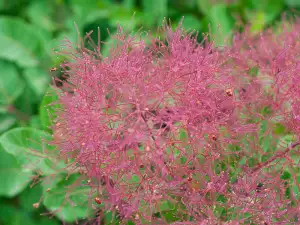


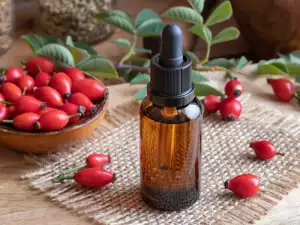
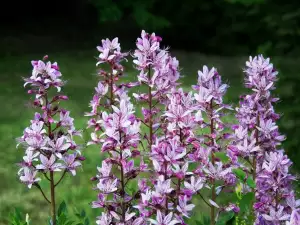
Comments